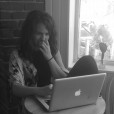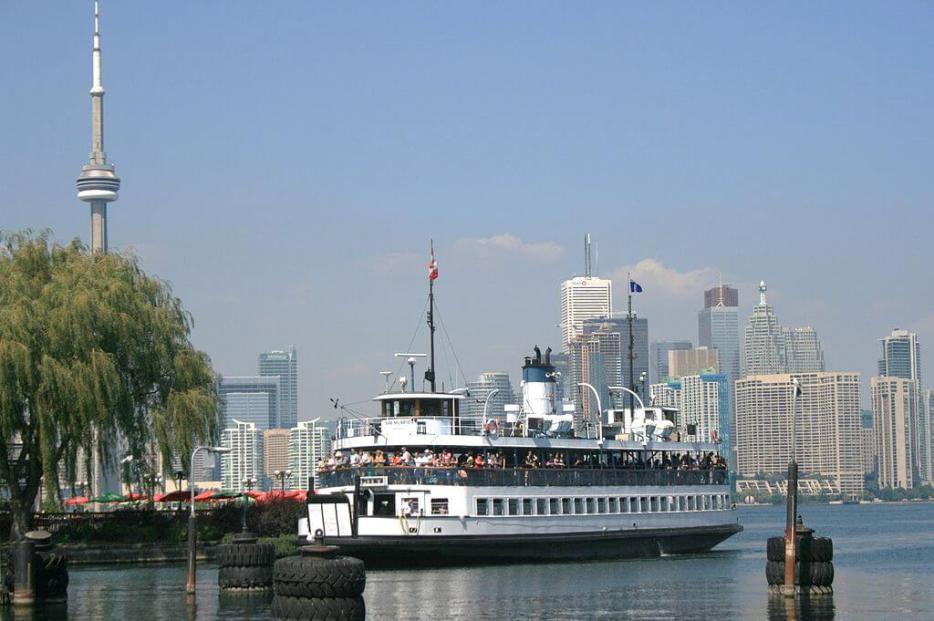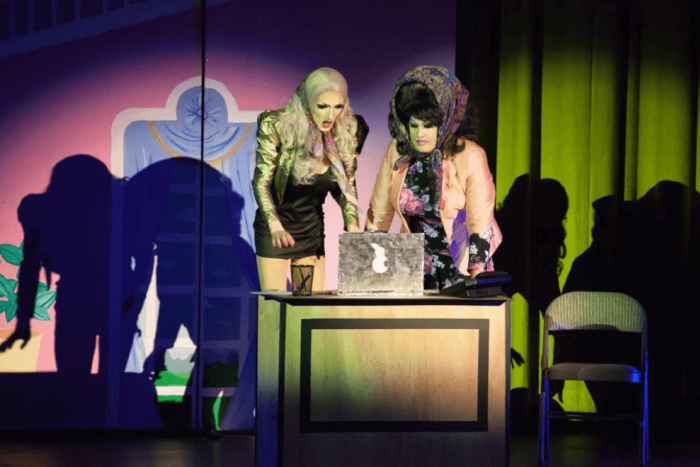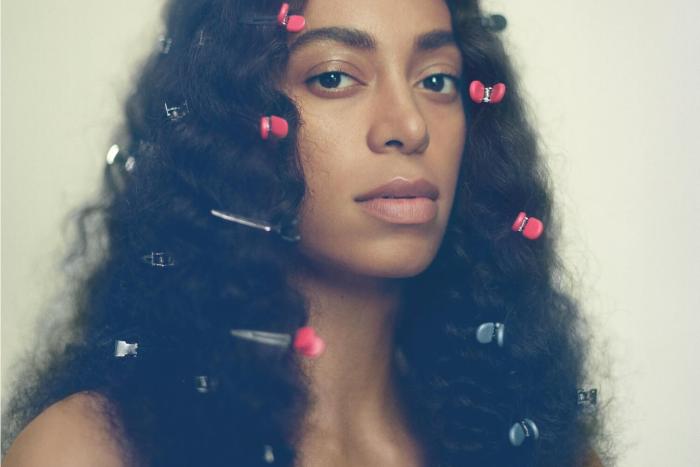What was important to us in 2016? Hazlitt’s writers reflect on the year’s issues, big and small.
If you’ve ever been inside a Lenscrafters, you know that it smells like a heady combination of toxic perfume and cosmic vacuum. The mirrors are shiny, the floors are shiny, the optometrist’s hairs are shiny, all working in concert to form a gossamer commercial enterprise promising you a life in high-definition.
Two weeks ago, I walked into one for the first time. For the last ten years, I’d worn glasses intermittently—I wasn’t legally allowed to get behind the wheel of a car without a pair. But I hated how they looked on my face, so much that I chose instead to wander through the world in a blur. This has lead to some awkward encounters: walking by my longtime boyfriend on the street, ignoring a group of friends as they gathered in a bar to celebrate my birthday, taking a wrong turn on a hiking trail that led me four hours out of my way.
That day at the optometrist, I thought for the first time about the extreme sensitivity of my eyeballs when I was blasted in the right eye with a puff of air from a machine resembling an early ‘90s Mac computer, by an equally shiny-haired optometrist’s assistant. “Keep your eye open as wide as possible, please,” she repeated over and over. It took a few tries. How did people do this? I wondered, as my eyelid fluttered spastically. Later, I sat on a shiny stool, balancing a tiny half moon made of plastic on the tip of my index finger. I looked at it, a pool of solution collecting in the bottom like a puddle. Life was about to begin anew.
I don’t know if you’ve ever worn contacts but learning how is a laughably infantilizing experience. It took me an hour to slide those little suckers in. Struggling under the blazing white light, every clogged pore illuminated, I looked plaintively at the assistant, who sat on a stool opposite me and popped contacts in and out with nails so long they should have been illegal. Once I’d finally managed to clumsily put them in came the Herculean task of pushing them to one side and peeling them out, a concept my fingertips could not grasp. “One guy took six hours,” she told me as I grabbed my right eyelid for the seventeenth time. I did not believe her, and I still don’t.
“I just can’t get a good grip on them,” I said, confused until I finally cheated and pinched one with my nails, threatening my cornea but getting my contact the fuck out of its liquid prison. Still, that day in December, I walked out of the Lenscrafters wearing my contacts feeling like a new woman. The world glowed brighter than it ever had. “I can see the outlines!” I wanted to scream at everyone on the streetcar. My eyes were open wider than they’d ever been, I knew it.
*
It had been a long couple of years of not knowing where to look. I’d moved back to Toronto, something I’d sworn to myself I’d never do, to take a job I'd wanted for years. In this city, my addiction, which burns softly under the surface most of the time, turns to full-on flame. So when the opportunity arose to move into a little apartment on an island a quick ferry ride away from Toronto, I said yes.
I thought of it like I was quitting the city, an attempt to keep myself out of bars, keep myself in the trees. The last nightly ferry, which left at 11:30 p.m., provided a useful curfew. I’d always been attracted to unorthodox ways of life: I’d lived in a van in Yellowknife for a little while; I’d spent a few months camping alone in Patagonia. But I knew toying with isolation for too long could do more harm than good, so the island seemed perfect in that close-enough-but-far-away kind of way.
My little apartment, the top floor of a house on a tree-lined street that looked like it had sprung from a Wes Anderson film, was on Algonquin Island, population 229. It’s one of a string of islands in the middle of Lake Ontario, an unlikely refuge that’s eschewed development through an extremely complicated land-lease system that protects the residents, descendants of a tent city that sprung up on Ward’s, another island, in the 1880s and that eventually morphed into the cottage-like creations that exist there today. On the island, whimsy is king. Orange doors look more orange, and the adventures of a cat named Six Toes dominates the not-infrequent email chain most residents belong to. Residents aren't allowed to keep cars—if you need to bring one over, it costs more than a hundred dollars, it has to happen during weekly business hours, and it has to be a licensed business vehicle, so I moved with only what my mom and I could carry over on the boat one day. And there are no stores—the only places to buy food in the fall, winter, and spring, are the Island Cafe, open intermittently once the summer tourism mania quiets, and the Rectory Cafe, a restaurant just over the bridge from my home that closed most days at 5 p.m. My workout regime adapted to include my daily sprint to the ferry and lugging my groceries on foot then on boat as I made my winding way home.
For a while, it really did feel like little birds dressed me in the morning and carried me down the sunny garden path to the boat I took into the mainland every day, a breezy ten minutes on the Oniagara. I’d run my fingers along the keys of the piano in the little hut by the dock, and wave to the sailor who’d sweetly helped me carry all of my possessions over by boat one Saturday afternoon. On weekends, I padded along the sandy beach on Ward’s Island, or sat reading on the bench carved from a tree behind the Algonquin Island Association clubhouse. Just before last Christmas, I sang carols in a packed chapel. I thought to myself that I hadn’t felt connected to God in a long time, but that warmth in that church felt like something I could believe in. If it sounds perfect, that’s because for a while it was, a trick I played on myself to think I could slug it out in a city I’d left brokenhearted so many times before. But perfection is a fleeting abstraction. I couldn’t help but think, a few months later, as I walked down the icy path to the boat that by then was coated with treachery, that all I wanted to do was live in a place where I could order a pizza.
*
My year was filled with micro-failures. I blew every deadline I set for myself, and most that were set for me. I neglected my credit-card bill for nearly half a year. Interest piled up, and so did my dirty dishes. I stopped talking to my mother for several months, for no better reason than I couldn’t muster up the energy to weather the emotional strain that seemed to come with every conversation. I stopped being on time; I stopped making it. I felt like I’d run out of everything: money, chances, luck. My depression manifested in decreasingly cute ways as the year progressed. In January, I bought myself a waffle iron and ate waffles for dinner in the bathtub nearly every night. After three years of sobriety, I started drinking again. Drinking turned into dabbling with drugs. (Pro tip: A great second-date idea is doing ‘shrooms for the first time and crying on your prospective lover in front of a group of bikini’d beer-crushing teens—casting call for this Labatt ad from hell coming soon.) The job I moved for was slipping away and, with it, my sense of self and purpose. The feeling of falling behind grew more acute in the summertime when I turned 31 and my youngest sister got married. The autumn brought with it my middle sister’s engagement news. By late fall, I realized I had to quit my job, that I had come untethered. I wasn't keeping up with work or with life, and my health was shouldering the burden of stress. I needed some help and some time, I thought, as I handed in my resignation letter and broke up with my dream. I just needed to find a way to ask for it, to explain that I’d ended up hating everything I was supposed to love and I didn’t know how to adjust. I moved back to the mainland.
After my boyfriend suggested multiple times that I go to the eye doctor so at least I’d be able to see what my life looked like as I tried to figure it out, I finally acquiesced. We joked about how long I’d been walking around in a literal haze, but deep down I thought this might be the faint victory I’d been seeking. Who says you can’t buy clarity?
*
My right eye was too sore to touch—I looked like I’d been stamped in the face with a red bingo marker and, by then, my eyeball had started to ooze. I sat in the corner of the emergency room at Toronto Western Hospital, in a row of green chairs that I assumed they reserved for kids who’d swallowed their Lego blocks to make a point, and me.
The night had descended so quickly into catastrophe. When I’d walked home from the optometrist earlier I was proud and tall, feeling like even my posture had somehow improved since I’d placed tiny plastic lenses over my eyeballs. I was amazed—the world had literally never looked so good and I was sure this was the first step in the excellent new high-definition life that had begun the moment I slid on those imperceptible little eye coats. But no one told me that putting in contacts for the first time on three hours of sleep was inadvisable, until I called Telehealth after I’d spent two hours trying to peel off my right eyeball. I stood in front of my mirror, eyelids certain that my impending fingertip meant death and destruction and freaking out accordingly. And so it went, for hours, my body parts at war with one another.
Finally, after a series of frantic texts to my best friend (who responded with the genius medical advice to “remember if they ask what number the pain is to say TEN, ALWAYS TEN”), I decided to go to the hospital. Four hours of contact retrieval had beaten me. I was quitting, and this time, resignation felt good.
I arrived at Toronto Western and explained my plight. The intake nurse immediately went into mother-hen mode. The wait would be several hours, she said. Couldn’t I just do it myself? I looked wearily at her, and she grew quiet, kind enough to spare me the indignity of repeating that I’d rather wait long into the night to have someone else perform a simple action that ten million Canadians could do on their own.
Half an hour later, I was lying on a gurney, a doctor with a smile too big for an emergency room after midnight standing over me, squirting mystery juice into my eye from a squishy green bottle. All in, the procedure took three seconds, one one-thousandth of the time I’d sat, miserable, in the waiting room. And as I walked out, putting the year to bed, I felt relief of a different kind. I had quit everything this year, all things I should have loved but didn’t. But that’s what beginnings are for, right?
I know now that people get tired, that asking for help can feel good. That a little bit of water always feels better. That eyeballs heal pretty quickly, and so can your own expectations. I am more sure of this now than I’ve ever been.






